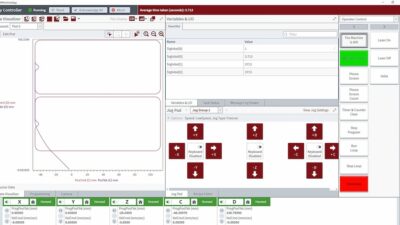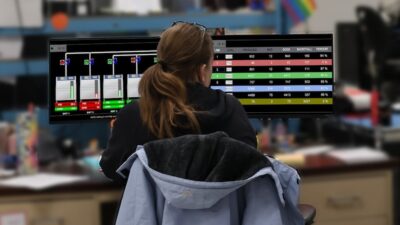Once upon a time, attending training courses meant having to make sacrifices. To receive the training, one had to travel to a specific location for a prescheduled course or seminar. Schedules had to be set around the course times and workdays were often missed for the sake of traveling and attending the training.
Once upon a time, attending training courses meant having to make sacrifices. To receive the training, one had to travel to a specific location for a prescheduled course or seminar. Schedules had to be set around the course times and workdays were often missed for the sake of traveling and attending the training.
The Internet has changed all that. Thanks to certain technological developments, employees no longer have to be slaves to other sources’ training schedules. Instead, they can receive the training they need or want online and on their own time.
Some companies that offer training courses are now offering those courses via the web. Those who wish to receive training simply log onto a website, type in an ID and password, and work on courses at their own pace.
Rockwell Software’s campus
One example is Rockwell Software’s (Mayfield Heights, O.) Online Learning Campus, an online “classroom” where registered participants attend classes online to become certified in a particular software. Certification tracks currently offered are: Communications, Control System Development, Microsoft, and General Interest.
Participants can select courses from Rockwell’s online course catalog, which describes courses and completion requirements. The catalog is searchable by certification track. Once courses have been selected, an online “syllabus” is created so progress can be tracked.
A typical online course syllabus contains a list of activities that must be completed and how much time is allowed to complete them. The activities are done on the participants’ own time, but are required to be completed by certain dates. This helps the participants stay on track.
Training “seminars” are completed by viewing preconstructed multimedia presentations on the website. The presentations are housed on Rockwell’s server and can be viewed and reviewed as often as the participant chooses. Each presentation is followed by a quiz or test. These tests are not graded, but exist solely for participants to review and retain what they’ve learned.
Throughout the duration of each course, message boards exist on the website for participants to communicate with others taking the same course.
These courses are not self-study. Instructors exist for each course and can be reached via the message board or e-mail.
Another feature of Rockwell’s online training is the ability to hold one-on-one meetings across the Internet via web conferencing software. This “NetMeeting” technology uses digital cameras and audio to conduct live, face-to-face meetings regardless of the distance between participants. Live demos and help sessions can also be done this way by sharing control of one person’s desktop.
Additional information on Rockwell Software’s Online Learning curriculum can be found at training.software.rockwell.com.
Host your own class
Fisher-Rosemount’s (Austin, Tex.) approach to self-study takes a somewhat different approach. Users can order “video-based training” packages that allow individuals or groups to participate in F-R’s training programs without having to leave town.
Training packages are mailed to a specified location within two weeks of ordering, and contain a course videotape; student guides with course discussions and tests; and instructor guides with trainer tips, course outlines, and student worksheets and quizzes.
According to F-R, these video courses can be used for remedial training, refresher courses, or as prerequisites for more advanced courses. For more information, visit www.frco.com/fisher/education .
| Author Information |
| Laura Zurawski, web editor [email protected] |
Sources of information about web-based learning:
Blackboard.com (
Teaching & Learning on the Web (
Dyro’s Web-based Training Site (
Virtual University (



